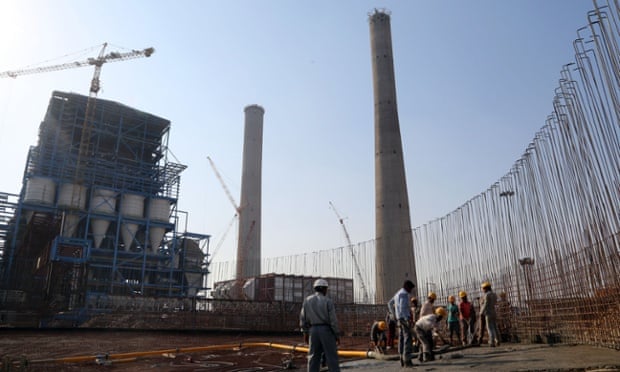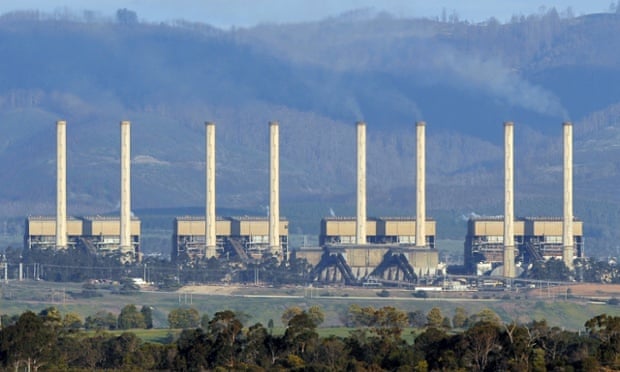Oil
Council foresees the end of fracking, proposes the worst possible
alternative
Shale
gas was supposed to be a bridge fuel. Yet next, a DOE advisory group
wants us to start drilling in the Arctic
LINDSAY
ABRAMS
28
March, 2015
Breaking
news, via the National Petroleum Council: the United States’
vast reserves of oil and natural gas are going to run out.
Nothing
good can last, says the largely industry-based advisory group to the
Department of Energy, not even something as good as fracking —
which is why the council recommends we start drilling in the Arctic
as soon as possible.
The
NPC’s report, released
Friday,
would almost be funny if it weren’t so frustrating. Natural gas
from fracking, remember, is supposed to be a “bridge fuel”: a
less harmful fossil fuel that can tide us over while we transition to
a truly clean energy economy. The oil and gas industry, this report
makes clear, never intended for that to be the case. Citing the
prediction that the U.S. shale boom likely won’t last beyond the
next decade, it argues that the next best course of action is to
pursue more oil, which also happens to be located in one
of the riskiest possible places.
“There
will come a time when all the resources that are supplying the
world’s economies today are going to go in decline,” Rex
Tillerson, CEO of Exxon Mobil and chairman of the study’s
committee, told
the Associated Press.
“This is will be what’s needed next. If we start today it’ll
take 20, 30, 40 years for those to come on.”
To
reiterate, he’s envisioning a future, decades down the line, when
we’re still dependent on fossil fuels. Never mind that to prevent
global warming beyond the already dangerous 2 degrees Celsius,
scientists warn that most of the world’s remaining fossil
fuels must
remain in the ground,
including 100 percent of those currently buried in the Arctic, or
that the U.N.’s Intergovernmental Panel on Climate
Change found we
need to be moving toward zero greenhouse
gas emissions by the end of this century.
And
never mind just how damn hard — and dangerous — Arctic drilling
is. The NPC insists that the industry has the technology to safely
drill in the icy waters, and to quickly clean up a spill if one
occurs: a report out
last year from the National Research Council couldn’t disagree
more. And the company that’s currently trying its hand at Arctic
drilling, Shell Oil, isn’t setting a great example for how things
are going to go. As the AP points out, “the company has little to
show after spending years and more than $5 billion preparing for
work, waiting for regulatory approval, and early-stage drilling.”
And
it may come as news to the industry, but, just like shale gas,
Arctic oil isn’t going to last forever. U.S. territory holds an
estimated 35 billion barrels of oil — “about 5 years’ worth of
U.S. consumption and 15 years of U.S. imports.”
Lindsay
Abrams is a staff writer at Salon, reporting on all things
sustainable. Follow her on Twitter @readingirl, email
labrams@salon.com.
"Simon
Bridges has just released the oil & gas block offer and its huge.
It's huge at 429,000 km2 which is considerably larger than the land
area of NZ and to put it in perspective it's larger than Greenland!
Scientists warn us we can't afford to burn 70% of the oil already
discovered if we want to leave our kids a safe climate yet National
is throwing tens of millions of taxpayer's dollars at Big Oil hoping
they find some more deep off our coasts.
All this Govt's time, energy
and money could have gone into supporting clean energy which grows 4x
more jobs and protects our climate."
---Gareth
Hughes, NZ Green Party
NZ:
Oil drilling threatens Maui’s dolphins, mammal sanctuary, forest
park
30
March, 2015
Media
release from Green Party
The
Government’s block offer announcement of an area almost twice the
size of New Zealand and including the home of the critically
endangered Maui’s dolphin and other protected conservation areas is
further evidence of how out of touch they’ve become, the Green
Party said today.
“The
Government has ignored the huge public concern about the risks of
deep sea oil and the risks to our marine life including our 55
remaining Maui’s dolphins,” Green Party mining spokesperson
Gareth Hughes said today.
“The
Government is putting oil profits ahead of protecting our precious
places. Areas of the West Coast North Island Marine Mammal Sanctuary
as well as the Victoria Forest Park are still included in the
permits.
“It’s
clear the Government doesn’t care about protecting our precious
last remaining Maui’s dolphins when they are offering up their home
for oil and gas exploration while it is known that seismic surveying
can seriously harm marine mammals.
“The
strategy of luring oil companies to New Zealand is failing and this
block offer shows how increasingly desperate the Government is
becoming with the latest block larger than the size of Greenland.
“The
amount of our land and oceans being offered up to foreign oil
companies has increased 125 per cent since 2012. It raises the
question if they will stop at nothing to help foreign oil companies
make a buck.
“If
the Government has its way there will soon be virtually no areas of
New Zealand not offered up for cheap to big overseas oil companies.
“While
big international oil companies slash their exploration budgets due
to the low oil price, the National Government arrogantly continues
its failing strategy of backing this sunset industry with taxpayer
subsidies.
“Internationally,
we must keep 80 per cent of all known fossil fuel reserves in the
ground in order to have a chance of staying below 2 degrees warming.
“Our
beaches and climate can’t afford National’s misguided economic
strategy of hoping Big Oil finds something down deep in our waters
and crossing their fingers they don’t leave too much of a mess as
they export any profits.
“The
Government must listen to the concern about its reckless oil and gas
plans and instead invest in renewables and a transition to a green
and sustainable economy,” said Mr Hughes.
Thousands
of anti-deep sea oil drilling protesters made their message heard at
a protest in central Auckland on Sunday
UN
green climate fund can be spent on coal-fired power generation
Rules
agreed a meeting of fund’s board described by Friends of the Earth
as ‘like a torture convention that does not forbid torture

28
March, 2015
The
UN fund to help developing countries fight climate change can be
spent on coal-fired power plants – the most polluting form of
electricity generation – under rules agreed at a board meeting.
The
green climate fund (GCF) refused an explicit ban on fossil fuel
projects at the contentious meeting in Songdo, South Korea, last
week.
“It’s
like a torture convention that doesn’t forbid torture,” said
Karen Orenstein, a campaigner for Friends of the Earth US who was at
the meeting. “Honestly it should be a no-brainer at this point.”
The
fund was set up as part of the ongoing UN climate negotiations to
help developing countries finance clean energy and measures to help
adapt to climate change.
Its
website states: “The fund will promote the paradigm shift towards
low-emission and climate-resilient development pathways by providing
support to developing countries to limit or reduce their greenhouse
gas emissions.”
It
has struggled for support, however, with industrialised countries
paying only about 1% of the $10.2bn (£6.9bn) committed at the UN
climate negotiations in Lima last December. The deadline for
contributions is 30 April.
With
no clear rules on climate finance, much of the funds can be
channelled to dirty energy, campaigners say.
Japan
designated $1bn in loans for coal plants in Indonesia as climate
finance, according to reporting by the Associated Press. Last week
Japan counted another $630m in loans for coal plants in India and
Bangladesh as climate finance.
Japan
claims the projects are less polluting than older coal-fired plants
and so qualify as clean energy. “Japan is of the view that the
promotion of high-efficiency coal-fired power plants is one of the
realistic, pragmatic and effective approaches to cope with the issue
of climate change,” Takako Ito, a foreign ministry spokeswoman,
told AP.
Campaigners
say the lack of clear rules makes a mockery of the fund. “Many
people think it’s crazy that they are not going to have a no-go
zone,” Orenstein said. “The fact that the GCF won’t say it is
problematic both for the integrity of the fund, and also reputational
risk.”
Japan,
China and Saudi Arabia opposed such a ban, she said.
The
board agreed to set a minimum benchmark for the greenhouse gas
emissions cuts that projects must achieve, but not until 2016.
Meanwhile, they will apply an “assessment scale” to the first
projects, which are set to be approved in October.

Australian
Conservation Foundation says US-style regulation should be introduced
to force the worst polluting plants to close
Queensland
coal delivers final knell to Great Barrier Reef
28 March, 2015
The largest coral reef on the globe — the Great Barrier Reef is 50 percent dead. That’s a whopping area much larger than the size of England.
Coral reefs are home to about a third of all fish species. They are crucial feeding, breeding and nursery grounds for sealife.
The relentless quest for Queeensland coal and thousands of super-coal-tankers are delivering the final blow to Earth’s most magnificent marine wonder.
Prime Minister Tony Abbott’s Liberal government supports polluting the biosphere and making Earth uninhabitable for life as we know.
China is the largest importer of Australian coal. Last year they cut their demand by 10 percent. And now they are forecasting another 10 percent drop in coal consumption for 2015.
Chinese citizens are chocking to death on coal so the Chinese government is racing to diversify into wind and solar technologies.
Queensland’s coral reefs are in shocking shape, so now UNESCO is considering listing the Great Barrier Reef as a site “in danger.” This would protect the remaining coral reefs and prevent coal exports skyrocketing from 240 to 787 million metric tons, annually.
The current Australian government is scrambling to preclude UNESCO from listing the Great Barrier Reef as a site “in danger.” This would curtail their business-as-usual of delivering more heat-trapping, poisonous coal to a subsidized world marketplace.
Solar roadways are an exciting new innovation awaiting funding. Subsidizing Big Oil, Big Coal, Big Gas and fracking is polluting the air, water and soil — new technologies are the future.
Clearly, it’s time to embrace innovation, keep coal in the ground and save the largest remaining coral reef on the globe!
Sea Shepherd Australia needs your help to protect the Southern Ocean Minke whales from loathsome, ocean-killing Japanese whalers.
Please support Fight for the Reef, the Bob Brown Foundation and Sea Shepherd Australia because they’re protecting the glorious Great Barrier Reef.



No comments:
Post a Comment
Note: only a member of this blog may post a comment.